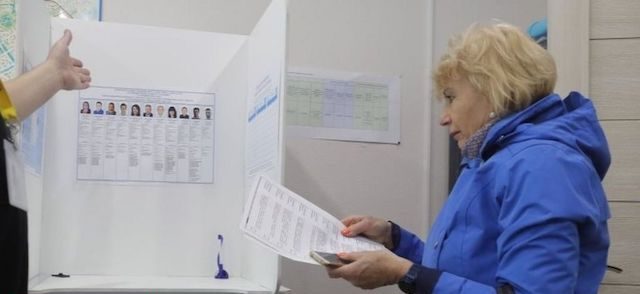Russians head to polls in regions throughout the country on Sunday to cast their votes in local elections set to test the dominance of United Russia, long-time President Vladimir Putin’s party.
The elections will be conducted in the course of several days as a precaution to prevent the spread of the coronavirus.
The main and final day of voting comes up on Sunday, and will take place against the backdrop of months-long anti-Putin protests in the Far East and the near-fatal poisoning of dissident Alexei Navalny with the Soviet-developed nerve agent, Novichok.
A nationwide survey by Russia’s biggest independent pollster, Levada Centre, revealed last month that more than a quarter of Russians – 29 per cent – would participate in anti-government protests if held in their area.
Navalny’s team urged Russians to vote for candidates from any party other than United Russia, which currently dominates the federal parliament and many regional administrations.
Any other candidate – “a Communist, a Liberal Democratic Party member, a Just Russia party member” – would be “better than United Russia,” Navalny’s team said in a statement on Friday, referring to Russia’s four major political parties.
“Any of them will be a better representative for you than a thieving official who has been sitting for 20 years under a portrait of Putin and appearing in front of you every five years” to be re-elected, Team Navalny said.
While Putin maintains the loyalty of United Russia, he is not a current member of any political party and is thus able to distance himself from unpopular measures initiated by subordinate senior officials.
The elections, like a recently passed constitutional referendum to enable Putin to remain president for the next 16 years, will not be independently monitored by the Organisation for Security and Cooperation in Europe (OSCE).
The lack of presence by the OSCE, and the duration of the voting period being extended to several days, have raised concerns of the potential for falsifications.
*Source Dpa/NAN

